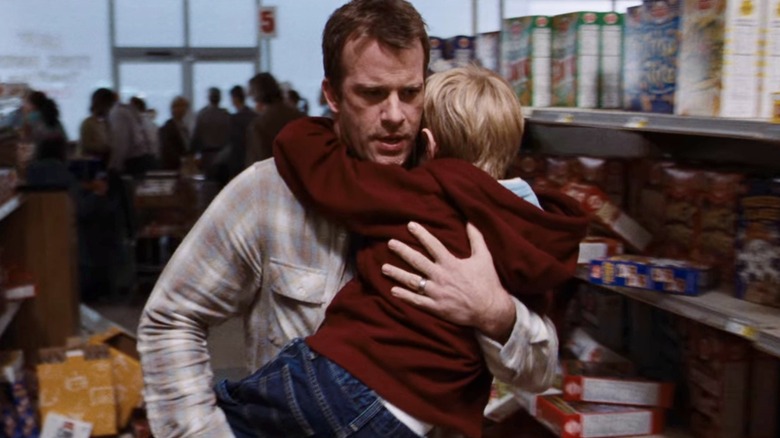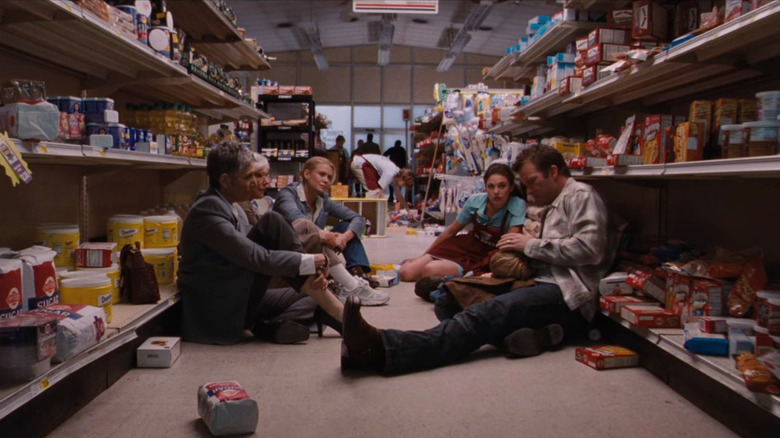Why Frank Darabont Wanted To Adapt Stephen King's The Mist [Exclusive]
Prior to "The Mist," writer-director Frank Darabont's specialty was the prestige Stephen King film adaptation. With "The Shawshank Redemption" and "The Green Mile," Darabont raked in multiple Oscar nominations, joining Rob Reiner ("Stand by Me," "Misery") as one of the best go-to filmmakers for adapting King's literary works. A monster movie about people trapped in a supermarket while tentacled creatures overtake the world outside might not seem like the obvious choice for a follow-up to those two films, but Darabont had already proven right from the start that he was capable of creating more than just prison dramas out of King's source material. He actually began his career with a short film based on King's short story, "The Woman in the Room," which set off King's Dollar Baby program, whereby he allows student filmmakers to option his stories for one dollar.
Because he had commercial ambitions for it, Darabont optioned "The Woman in the Room" for $5,000 — but it was a check King never cashed. This is just one of the stories told by Darabont and the cast and crew of "The Mist" in Eric Vespe's new 15th-anniversary oral history of the movie for /Film. Another is the story of why Darabont wanted to make "The Mist" in the first place. The filmmaker told us:
"'The Mist' called out to me for a number of reasons. One of which is I just thought it was such a potent comment on not just our society, but all societies. We've got this very, very complex technological society and we're becoming more and more dependent on that, by the way. And the more and more we do, the more and more there is this backlash of mistrusting science."
'Under the donuts and candy, there's actually a very nutritious meal'
"The more we progress into the future," Darabont continued, "the more there's going to be a part of society that wants to go back to a very primitive, very superstitious [time]. And 'The Mist' really spoke to that."
Darabont also unpacked the movie's central theme, pointing to the scene where Thomas Jane's protagonist, David Drayton, says, "Yeah, when the machines are running and everything's fine, okay. [...] But turn off the lights, and no lights, no machines, no rules, you'll see how savage people get."
"I love when an unpretentious genre movie will actually present a significant theme like that," Darabont said. "It's under the donuts and candy, there's actually a very nutritious meal and I love when that happens."
To preserve the integrity of its shocking ending, "The Mist" was made under a much tighter budget than "Shawshank" or "The Green Mile." And since it was coming from the creature feature tradition, anyway, it saw Darabont shifting into B-movie mode. Yet this is something that was hard-wired into the DNA of the story, which was also perfect fodder for a black-and-white director's cut, available on the two-disc Blu-ray.
Darabont concluded:
"When I was reading ['The Mist'], somehow I just pictured one of those low-budget movies that we grew up all watching. In my case, pre-video, late at night usually on some creature feature. It just reminded me of that sort of '50s, early '60s, low-budget, usually black and white, grainy kind of horror movie. It just felt like one of those things. And that appealed to me greatly as well. So it's a fascinating balance to me between very high-brow and very low-brow elements. And nobody does that better than Stephen King."

